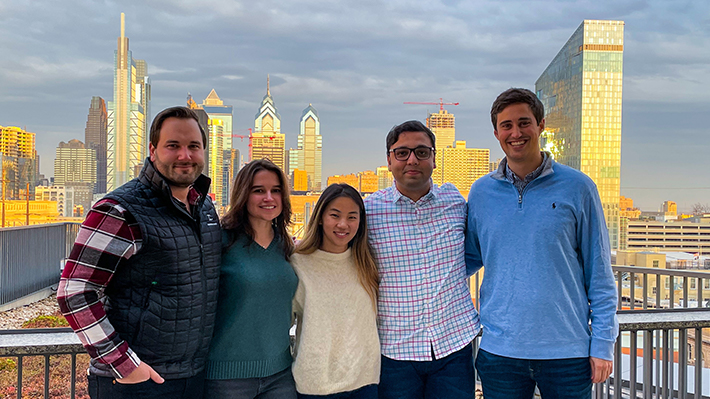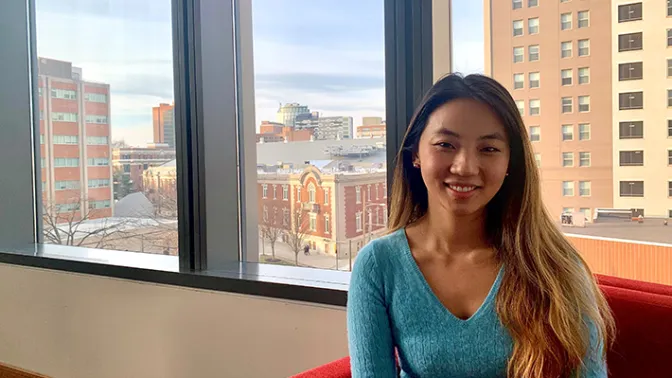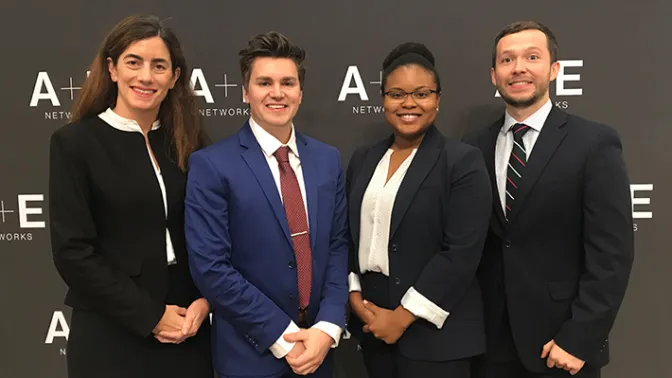
A Grassroots Approach Wins LeBow Team a Case Competition Title
A team of LeBow second-year MBA students won the 2021 Interactive Case Competition, organized annually by Interactive TV Works, by tackling a major societal problem: the “digital divide,” wherein many communities still lack access to broadband internet.
Where previous iterations of this long-running competition have been more tech-centered, focused on topics like digital streaming services and adopting innovative technologies, this year’s was more grassroots and community-focused. The LeBow team’s framework, which outlined neighborhood-based resources to reach users, gain buy-in and supply them with the needed equipment, won praise from competition judges, put them in first place ahead of teams from New York University’s Stern School of Business and Villanova School of Business and earned them a $2,500 prize.
For full-time MBA students Sophia Boniecki, Stephen Chase, Julian Crowther, Ketan Kumar and Isabelle Shumate, this wasn’t their first time working together on a competition: they entered LeBow’s Marketing Crisis Competition in March 2021 and won, devising a marketing and public-relations response for Saxbys.
The team members attributed their success, in part, to their familiarity with one another from that competition and from their MBA classes. Chase recalled that during the 2020-21 academic year, when classes were taught in a hybrid format, he and his teammates were among the students who chose to attend classes in person.
“Classes where we had to present were very good preparation,” he said, citing Business Problem Solving (MGMT 510) and Leading High-Performance Teams (ORGB 520). “Everyone would work on the presentation, but only one person had to speak, which meant we had to make it direct, cohesive and concise.”
With their diverse set of skills — three concentrating in finance, and one each in marketing in technology and innovation management — the team divided up into roles focused on marketing research and segmentation. For Shumate, a dual MBA/Master of Public Health student, it seemed natural to approach the problem from a public health perspective and to identify an existing, trusted program — free lunches offered through public schools — as a vehicle.
“We approached this as a social service and public health issue,” she said. “Food is widely accepted as a necessity and today, internet is a necessity. We’ve seen throughout the pandemic that without internet access, kids would be left behind.” Where their competitors focused on partnerships with major companies like Amazon or Comcast, the LeBow team’s approach was practical and grassroots: coordinating outreach to families through community leaders and organizations, for example, and identifying refurbished technology, like laptops and tablets, as an underutilized potential resource.
“We said cost is one factor — there’s also infrastructure, trust and policies,” Chase said. “You can bring the cost down, but if the trust isn’t brought up, there’s no guarantee that it’s going to work.”
Though the team members received strong feedback from competition organizer Craig Leddy and their assigned mentors, Heidi J. Diamond of GoodRx and Paul Strickland of Comcast, they went into the finals without any expectations.
“We knew Drexel had a team come in second once, so we felt like the underdog,” Chase said. “Still, we felt as though we flourish under pressure and that you could see our dynamics as a cohesive team.”


